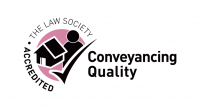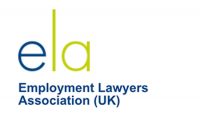We pride ourselves on providing a high-quality personal service to our clients which we believe will give you good value for money.
In a non-taxable estate where the value of the Estate does not exceed £500,000.00 the costs obtaining the Grant of Probate and administering the Estate where we are not named as executor and there is a Will, averages between £2,500.00 to £5,000.00. The following factors can increase these costs –
- Numerous legacies or multiple beneficiaries
- Numerous assets to encash/transfer
- Large share portfolio
- An intestacy
Where the Estate is taxable, we are not names and executors and there is a Will, obtaining the Probate and administering the estate will costs on average –
An estate worth up to £500,000.00 – £4,000.00 – £6,000.00 plus VAT
An estate worth between £500,000.00 and £1,000,000.00 – £6,000.00 – £10,000.00 plus VAT
An estate worth between £1,000,000.00 and £2,000,000.00 – £10,000.00 – £15,000.00 plus VAT
An estate worth over £2,000,000.00 – £20,000.00 plus VAT
- The following factors can increase these costs –
- Numerous legacies
- Multiple assets to encash/transfer
- An intestacy
- Complexity of Will or assets
- Whether a deed of variation needs to be prepared
The fees quoted above are based on a number of assumptions about the size and complexity of the estate. Additional fees will be charged in some circumstances where the matter is complicated.
These will be charged at an hourly rate of actual time spent in dealing with the specific issue. The fees below are a guideline only.
There is not a valid will
We anticipate that dealing with such an estate (known as an Intestacy) will incur an additional fee of no more than £500 plus VAT plus further disbursements.
There is more than one property
We anticipate that dealing with additional properties will incur an additional fee of no more than £100.00 plus VAT
There are more than 5 bank or building society accounts
We anticipate that dealing with additional bank or building society accounts will incur a charge of no more than £100 plus VAT.
There are other intangible assets
The exact cost will depend on the individual asset and the work involved in transferring that asset to a named beneficiary. We would expect the time incurred to be between an additional 1 to 2 hours per asset at a charging rate of £250 plus VAT.
There are more than 5 beneficiaries
We envisage that there will be an additional charge of no more than £250 per hour plus VAT and disbursements
There is inheritance tax payable and the executors need to submit a full account to HMRC
We would envisage that this would involve an additional 1.5 – 3 hours at a charging rate of £250 per hour plus VAT.
There is a Share Portfolio to administer
This will incur a minimum additional charge of £500.00 plus VAT plus disbursements
Disputes between beneficiaries on division of assets.
If disputes arise this is likely to lead to an increase in costs dependent upon the time it takes to resolve. This will be charged at an hourly rate of £250+VAT and disbursements.
Claims against the Estate
Fall outside the remit of probate instructions, should this situation arise you will be referred to our litigation department who will be able to discuss costs with you.
Where Extensive Correspondence Is Required
With either the beneficiaries or executors.
Where the Deceased Had Complex Business Affairs
Disbursements are charges we incur on your behalf but which do not form part of our fees for carrying out the work.
Disbursements on an estate may include:
- Probate application fee of £273.00 plus £1.50 per copy
- £7 – Swearing of the oath (per executor) if there is valid will, £5.00 for swearing of the oath if there is no will
- Bankruptcy-only Land Charges Department searches (£2.00 per beneficiary)
- £62.15 plus VAT Post in The London Gazette – Protects against unexpected claims from unknown creditors.
- £tba Post in a Local Newspaper – This also helps to protect against unexpected claims.
- Office Copy Entries to check form of ownership of your property, where it was jointly owned £3.00
- Share Valuations/sale – depending upon the number of securities to be valued, there is a minimum fee of £45.00.
- Redbook valuation for the sale of probate property, if required £475 plus VAT
- Bankruptcy Searches carried out against any beneficiary prior to distributing any monies due from the estate £2 per name
- Will search fee £114.00
Estate administration sometimes involves work which is beyond the usual scope of work for obtaining probate, administering and distributing the estate. Work of this type is not included in our costs set out above and includes:
- Deeds of Variation
- Advice on foreign assets
- The buying or selling of property
- Litigation advice
- Advice on claims by any commercial entity or beneficiaries against the estate
Stage 1: Work To Obtain the Grant of Probate
- Meeting with the executors to discuss the estate and consider answers to the probate questionnaire.
- Compiling a list of the assets and liabilities of the estate.
- Obtaining valuations of all assets and liabilities of the estate.
- Drafting and approving, with the executors, HMRC’s estate information paperwork.
- Preparing the executors’ oath.
- Meeting with the executors to review the matter and sign the paperwork required to apply for probate.
- Applying for and obtaining the Grant of Probate.
Stage 2: Administration of the Estate
- Preparing and issue section 27 Trustee Act notices
- Where required, realising any assets and arranging for payment of these to either our account or to beneficiaries.
- Paying all debts, funeral expenses, Inheritance Tax and legacies.
- Carrying out bankruptcy searches and paying pecuniary legacies.
- Finalising the estate and ensuring that the terms of the Will have been complied with.
- Obtaining confirmation of payment of Inheritance Tax.
- Arranging for the executors to approve the Estate Accounts.
- Sending the estate accounts to any residuary beneficiaries for approval.
- Carrying out bankruptcy searches and distributing the residuary estate.
- Dealing with the deceased’s income tax affairs to the date of death.
- Completing a Trust and Estate Tax Return for the period of administration.






